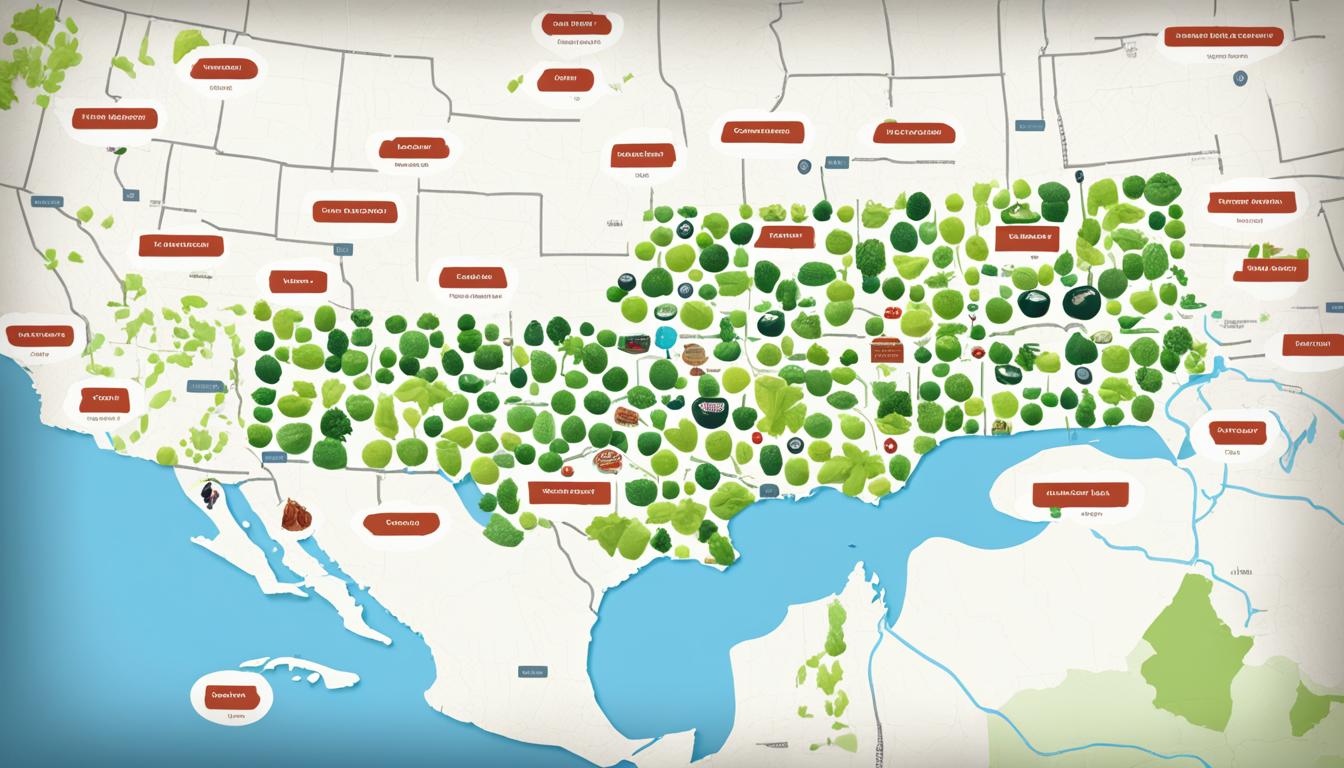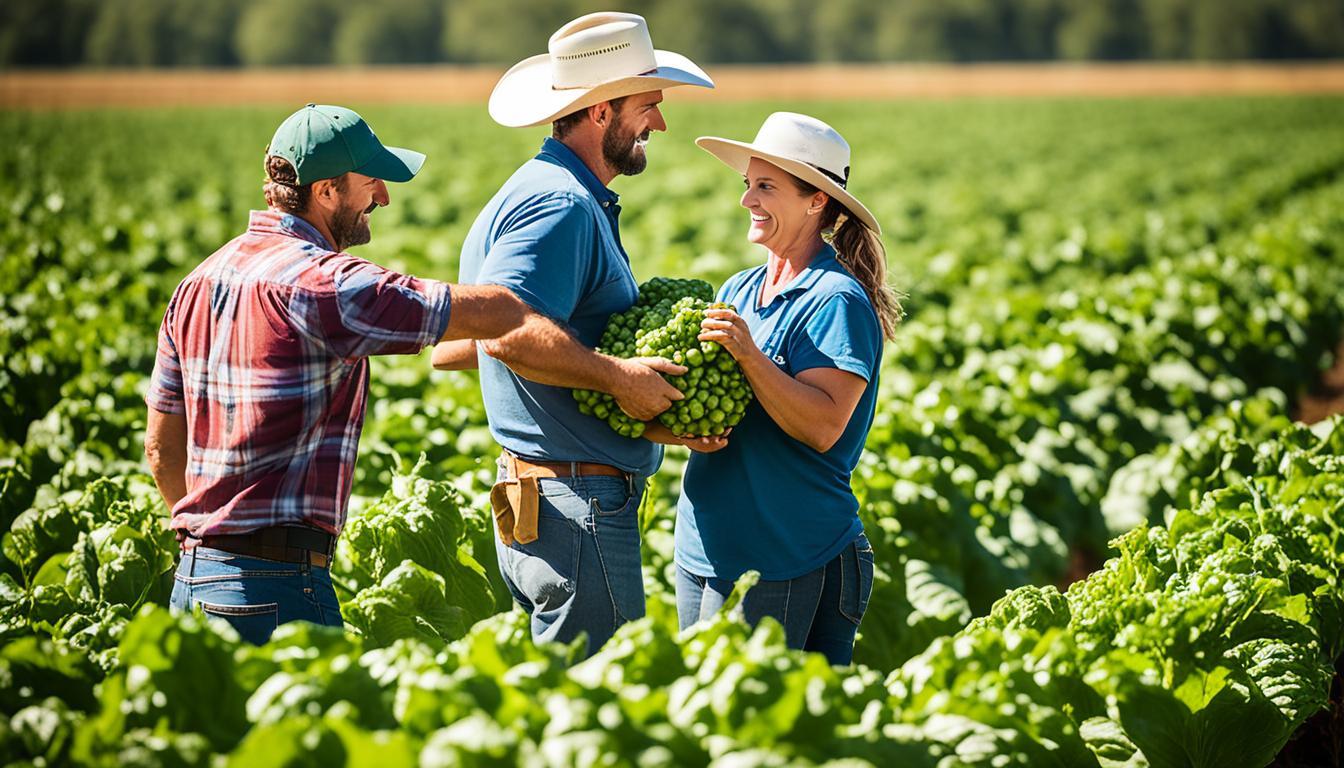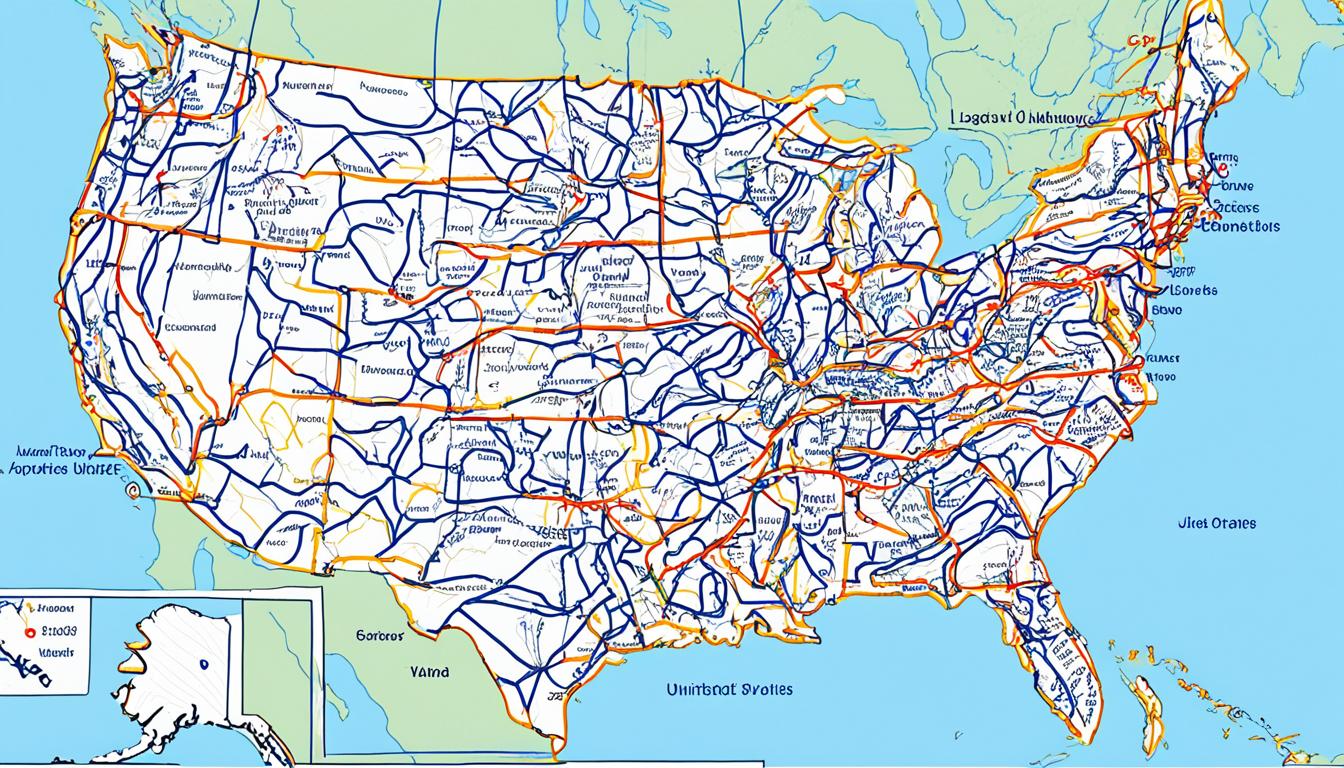In the vast terrain of the culinary supply chain, Chipotle stands out for its unwavering commitment to local sourcing. By defining local as purchasing from suppliers within a 350-mile radius of their distribution centers, Chipotle showcases a business model that not only prioritizes freshness but also propels their wider sustainability efforts. This deliberate definition underpins the strategic approach Chipotle takes to foster a resilient supply chain, affirming their dedication to both ecological responsibility and the nourishment of local economies. Let’s dive into the intricacies of what Chipotle’s definition means for the broader food industry and for consumers seeking transparency and quality on their plates.
Key Takeaways
- Chipotle’s commitment to local sourcing defines “local” as within 350 miles of a distribution center.
- The brand’s local sourcing is a core aspect of their pledge to sustainability and smaller carbon footprints.
- Supporting local economies and fortifying the nexus between Chipotle and area farmers are key benefits of their sourcing strategy.
- Freshness and quality of ingredients are enhanced by Chipotle’s locality criteria.
- Chipotle’s definition of local sourcing is part of a broader definition of their Food with Integrity philosophy.
The Fundamentals of Chipotle’s Food with Integrity Philosophy
Embarking on a journey of ethical and sustainable food culture, Chipotle has set itself apart through its commitment to the Food with Integrity philosophy. This fundamental approach is not just a marketing slogan, but a deep-rooted ethical practice that reflects the brand’s dedication to quality, transparency, and responsible sourcing. As part of this endeavour, Chipotle insists on aligning its objectives with the aspirations of their patrons, who increasingly demand not just flavorful meals, but also a transparent food journey they can trust.
Origins of the Food with Integrity Commitment
Chipotle’s pledge to Food with Integrity dates back to its inception in 1993, with a vision that goes beyond mere taste to touch upon the ethos of food preparation and sourcing. The philosophy germinated from a simple question: “What if fast food could be good food?” The answer to this led to a relentless pursuit of serving dishes made from the finest ingredients and building a business that does right by the people and the environment.
Essentials of the Supplier Code of Conduct
Integral to preserving the standards of the Food with Integrity philosophy, each supplier is expected to adhere to Chipotle’s stringent Supplier Code of Conduct. This document serves as a blueprint for maintaining ethical practices throughout their supply chain. It underscores responsible farming, prioritizes animal welfare, and emphasizes on food safety – all essential elements that Chipotle mandates to ensure the ultimate integrity of their food.
Sustainable Practices: Suppliers are encouraged to pursue sustainable farming, which includes conserving water, maintaining soil health, and reducing carbon footprint.
Animal Welfare: The Code insists on humane treatment of animals, reinforcing Chipotle’s refusal to compromise on animal welfare.
Food Safety: Rigid food safety protocols are in place, affirming that safety is never to be sacrificed for profit.
Why Local and Organic Matter to Chipotle
Chipotle’s food ethos holds “local” and “organic” as two pillars for delivering on their promise of serving food with integrity. By sourcing from local farmers and artisans within a close radius of their restaurants, they minimize environmental impact from transportation and contribute to the financial health of the local communities. Meanwhile, organic sourcing enables Chipotle to offer food free of synthetic pesticides and fertilizers, which aligns with their sustainability goals and support for natural farming practices. The confluence of local and organic sourcing is the heart of Food with Integrity, ensuring that their conscientious consumers enjoy meals that not only taste great but also do good.
Ultimately, Food with Integrity is not just a philosophy; it’s the embodiment of how Chipotle approaches the culinary business. By prioritizing local and organic produce, this philosophy enables Chipotle to maintain a novel culinary experience that satiates body and soul while steadfastly respecting the planet and its inhabitants.
What Does Chipotle Consider Local in Their Supply Chain

One of the core elements of Chipotle’s ethos is the focus on local sourcing. But what is the definition of ‘local’ within their supply chain? Chipotle adheres to a specific criterion: ingredients must be sourced from within a 350-mile radius of their restaurants or distribution centers. This approach not only supports local economies but also promotes the consumption of fresher produce and meats, ultimately leading to a better customer experience.
In the drive to maintain a supply chain enriched with locally sourced ingredients, Chipotle emphasizes on not just the proximity but also the quality of its produce. Local sourcing signifies more than just geographical closeness; it’s about building trust and fostering relationships with the regional suppliers who are the backbone of Chipotle’s operations.
- Supports local farmers and producers
- Ensures ingredient freshness
- Lowers transportation emissions
Moreover, by giving precedence to local sourcing, Chipotle is committed to reducing their carbon footprint. Fewer food miles translate to fewer emissions, aligning with their sustainability mission. Below is a breakdown of how local sourcing integrates within the Chipotle supply chain:
| Component | Description |
|---|---|
| Definition of Local | Ingredients sourced within a 350-mile radius |
| Economic Impact | Supports regional farmers and producers |
| Environmental Benefit | Reduces carbon footprint due to shorter transport distances |
| Quality and Control | Enhanced ability to oversee the cultivation and harvest processes |
Conclusively, Chipotle’s dedication to local sourcing is not merely a facet of their business logistics; it is a fundamental aspect that defines their identity and engagement within communities. By standing firm on their local sourcing pledge, they not only bolster the integrity of their supply chain, but also carve a niche that is distinctly Chipotle.
Chipotle’s Impact on Communities Through Their Sourcing
At the heart of Chipotle’s mission is a dedicated effort to foster strong communities. Their model is not only about exceptional dining experiences but also about generating a ripple effect of positive change through mindful sourcing strategies. This entails a comprehensive approach that extends far beyond the walls of their restaurants, as Chipotle’s sustainable practices, community contributions, and disaster relief efforts play a significant role in enriching the lives of many.
Investing in Local Farmers and Cultivating Sustainable Practices
Support for local farmers is a cornerstone of Chipotle’s ethos. By forming partnerships with these agricultural entrepreneurs, Chipotle creates avenues for economic growth while encouraging sustainable practices. These collaborations highlight the brand’s commitment to making a substantial impact on regional agriculture, prioritizing environmental stewardship and long-term farm viability.
Community Contributions and Disaster Relief Efforts
Beyond agriculture, Chipotle’s community contributions resonate through their involvement in disaster relief operations. Understanding the devastating impact that natural disasters can have, Chipotle offers significant support in the aftermath, providing affected communities with much-needed resources from food to financial aid. This social responsiveness is a testament to Chipotle’s holistic approach towards community impact and solidarity.

| Community Initiative | Description | Impact |
|---|---|---|
| Local Farmer Support | Stable market for local produce, endorsement of eco-friendly farming methods | Boosts local economies, promotes sustainable farming |
| Disaster Relief | Donations, food aid, and volunteer support for disaster-stricken areas | Facilitates recovery and conveys solidarity with affected communities |
| Educational Programs | Programs supporting agriculture education in communities | Empowers next-generation farmers, enriches community knowledge |
Chipotle recognizes that their role in the food industry is intrinsically linked to broader societal responsibilities. By continually investing in local farmers, insisting on sustainable practices, and stepping up as a pillar of support during times of crisis, Chipotle molds a future where businesses and communities thrive together in harmony.
The Journey From Farm to Chipotle’s Kitchen
In the arena of fast-casual dining, Chipotle stands out not just for its bold flavors but also for its foundational commitment to a sustainable sourcing process. This journey, which brings ingredients from the farm to kitchen, is a testament to the brand’s dedication to local and sustainable practices. From the outset, Chipotle collaborates with a network of local farms and suppliers, those who have pledged to adhere to strict guidelines encompassing responsible farming, animal welfare standards, and the utilization of organic methods.
Once the harvest occurs and animals are nurtured in concordance with Chipotle’s elevated criteria, these farm-fresh ingredients embark on their carefully plotted course to a network of distribution centers. By meticulously positioning these hubs within a 350-mile radius, Chipotle ensures a minimized transit footprint, reinforcing their ethos of sustainability. These centers act as essential waypoints, where the bounty of produce and ethical meats are then swiftly dispatched to nearby Chipotle restaurants.
Upon arrival in Chipotle’s kitchens, a final transformation takes place. Here, seasoned and proficient crew members orchestrate their culinary skills to craft meals that sing the praises of freshness and quality. It is within these culinary havens that the quintessence of Chipotle’s ethos—traceable from the farm, through each ingredient’s transition, and to the final flavorful offerings—reaches fruition. Through each step of this integrated process, Chipotle not only adheres to its core values but also invites its patrons to partake in a dining experience grounded in responsibility and care for the wider community.





